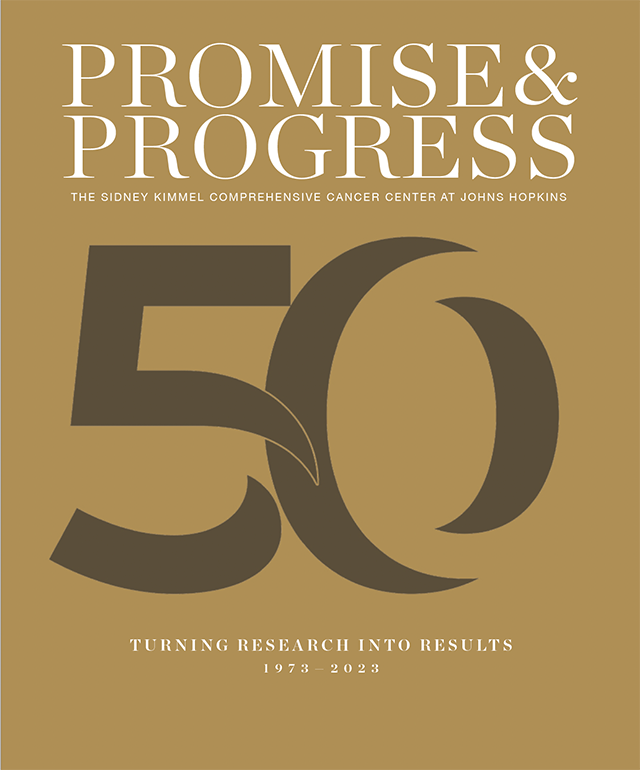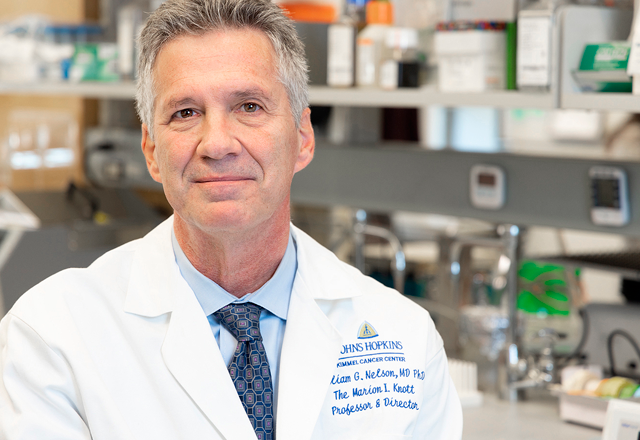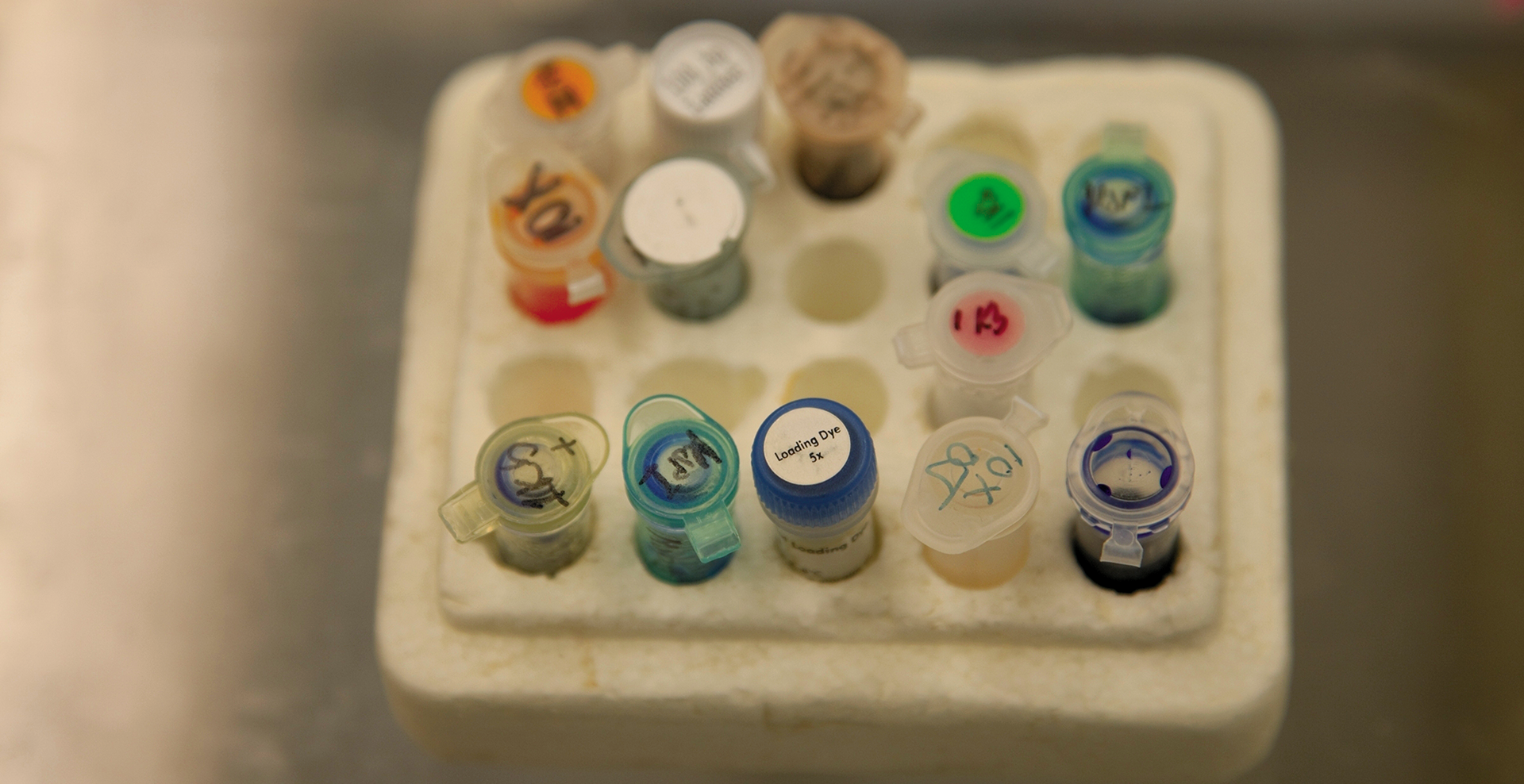From the Director
FIFTY YEARS OF TURNING RESEARCH INTO RESULTS


As one of America’s first research universities, it was fitting that Johns Hopkins was also one of the first nationally designated comprehensive cancer centers. In 1973, the university and hospital trustees approved construction of our Cancer Center. From the day we opened the doors, a talented and tenacious group of medical pioneers led the way in understanding cancer through research, developing therapies, attending to the complex needs of patients and disseminating findings to communities everywhere.
The pioneers included George Santos, a leader in bone marrow transplant; Paula Pitha, the center’s first laboratory researcher; Linda Arenth, who helped develop the standards of cancer nursing; Mike Colvin, who discovered how the chemotherapy medication cyclophosphamide worked and how to best use it to treat patients; Brigid Leventhal, our first pediatric oncologist; Moody Wharam, who revolutionized radiation therapy; and Ray Lenhard, Donna Cox and David Ettinger, who ensured advances were quickly communicated to oncologists and patients around the globe.
Leading this unique new enterprise — a medical center focused solely on the research and treatment of cancer — was Albert Owens Jr. I am humbled to follow in the footsteps of two of the greatest figures in cancer medicine: Al Owens and Martin Abeloff. Dr. Owens helped found the field of oncology and paved the way for our Cancer Center, and our second director, Martin Abeloff, led the center through a period of rapid growth in physical structures and discovery, with particular attention to the care and comfort of patients and their families.
The charge to take the foundation they put in place and somehow improve upon it has been my mission as the Center’s third director.
In this issue, you will read about our remarkable, groundbreaking history and the new pioneers who push the limits of human ingenuity to move cancer research and treatment forward.
The charge to take the foundation they put in place and somehow improve upon it has been my mission as the Center's third director."
Bill Nelson
Today, the Cancer Center occupies the largest footprint at Johns Hopkins, and our collaborations have grown to span five Johns Hopkins schools and 35 departments. Our experts have mapped the genetic blueprints for cancer, deciphered the epigenome, figured out ways to make the immune system fight cancer, brought proton therapy and other advanced technologies to radiation treatment, eliminated the need for perfect matches in bone marrow transplant, expanded community outreach to encompass diversity and inclusion, and entered the realm of digital cancer medicine. This digital technology has led to new frontiers, such as the microbiome and single cell sequencing, that allow us to look at cancer in completely new ways and uncover how individual cells in and around tumors influence cancer growth, spread, and response to treatment.
As we celebrate our history, we renew our mission to expand the boundaries of our imaginations until cure is possible for every patient."
Bill Nelson
As we conquer new challenges, we owe a debt of gratitude to our greatest pioneer, Sidney Kimmel. Without his continuing generosity and historic gift in 2001, none of these advances would be possible. To Mr. Kimmel and the many other donors who advance our understanding of cancer and improve our ability to care for patients, and to our patients and their families, we commit to you an even brighter future. As we celebrate our history, we renew our mission to expand the boundaries of our imaginations until cure is possible for every patient.
William G. Nelson, M.D., Ph.D.
Marion I. Knott Professor and Director
The Sidney Kimmel Comprehensive Cancer Center at Johns Hopkins
JOHNS HOPKINS is one of America’s first research universities and home to the Sidney Kimmel Comprehensive Cancer Center. From its inception, our Cancer Center had full support and cooperation of many departments, including Medicine, Surgery, Pediatrics, Radiology, Engineering, Mathematics and more, with the Department of Oncology serving as the academic home for the planning and operation of the Cancer Center at Johns Hopkins. This interdisciplinary focus on cancer continues to expand, and our diverse team of experts now spans five schools and 35 departments and includes oncologists, radiation oncologists, pathologists, radiologists, population scientists, nurses, engineers, physicists, astronomers, bioethicists and more, working together to combat challenging cancer problems.
